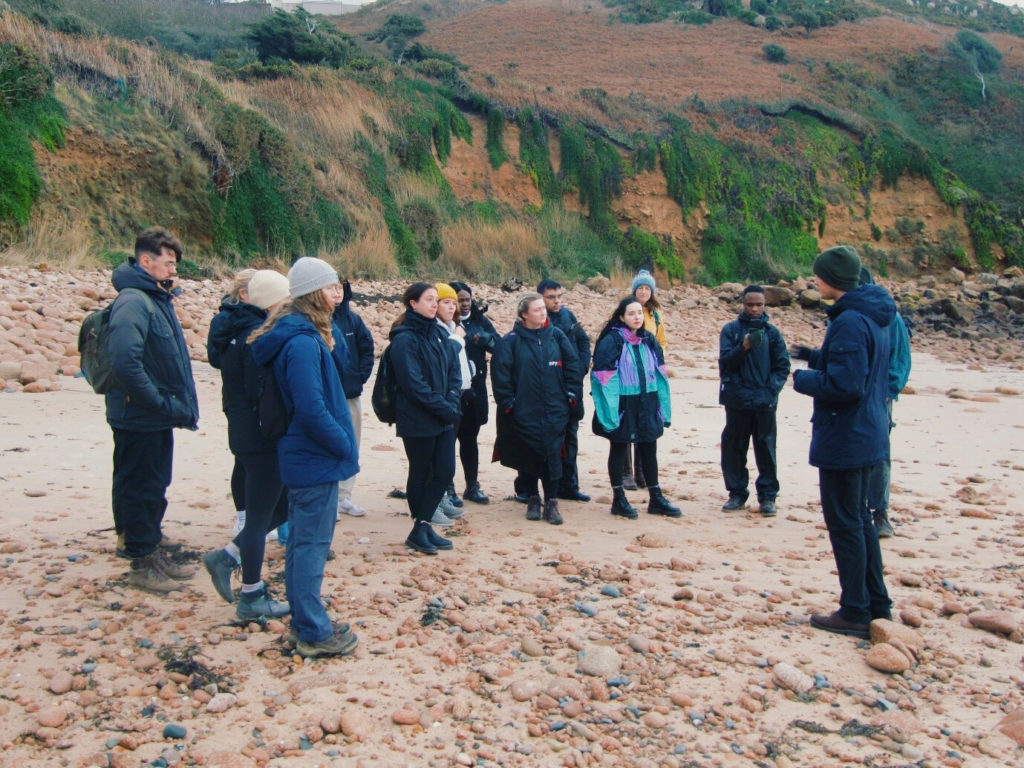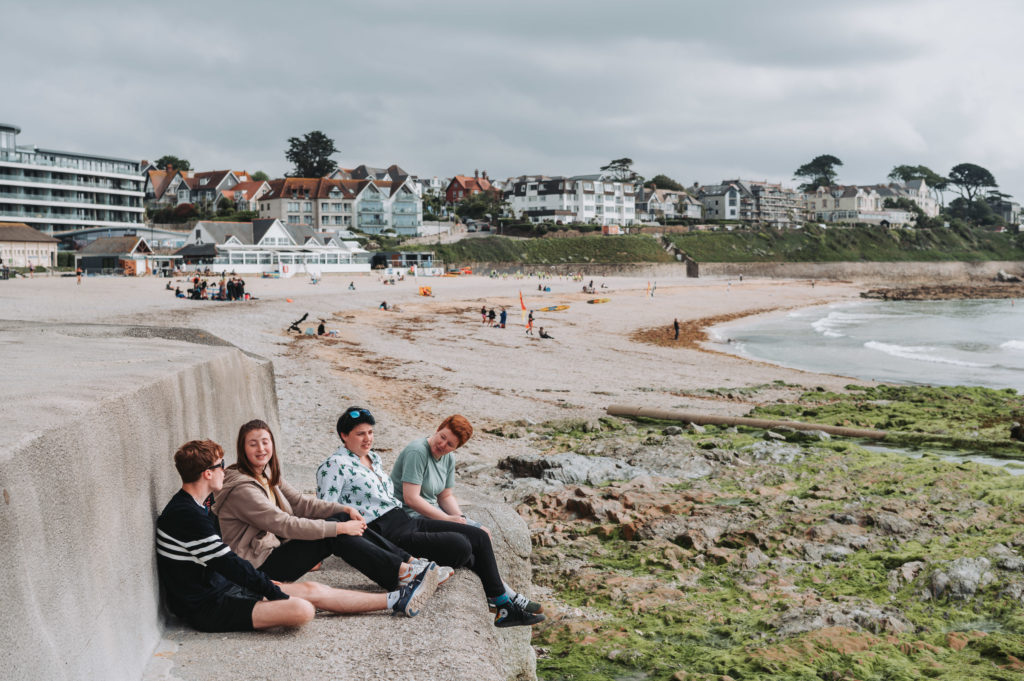I studied Marine Biology at Newcastle University for my undergrad, but I’ve always had an interest in the ocean and environmental change. The Marine and Coastal Sustainability MSc at the University of Exeter combines the ocean, environmental change and sustainability, focusing on people at the centre of it all. I think this makes it quite a unique Master’s course in the UK, and living in Cornwall for a year also felt like a very exciting opportunity.
What has been the favourite part of your course so far?
The fieldtrip to Jersey was very memorable. Ours did not go 100% to plan due to the weather but it was a great learning experience witnessing the real-life issues that come with fieldwork and how to overcome them. As it’s so early into the course it really is a great opportunity to get to know your course mates who may be doing different modules etc. Two of my closest friends from Penryn I met on that trip!

Are there any work placements or field trips you have done, or will do?
I had the option to undertake a work placement as a module rather than traditional lectures and assessments etc. We could apply for any placement we wanted within any company / sector, providing it was linked to the sustainable development goals. I ended up getting a placement with a carbon management consultancy firm working as a sustainable development analyst, focusing on blue carbon projects. This has been an incredible opportunity to get related experience, make new connections and learn new skills. The careers team were very involved through this process with sessions to help with CVs, cover letters and 1:1 interview prep. This process has made me more confident when it comes to applying for jobs and what they are looking for in the hiring process.
How do you think the course will help with your career progression?
I think whatever job I get after graduation will absolutely be because of this masters. I’ve met so many like-minded people, learnt so many new theories and different ways to tackle the same problem whilst thinking about things in a deeper, more analytical way. I have a far better grasp on data analysis too; both quantitative and qualitative, due to an intensive module in the first semester! I’ll use all these skills throughout my career which I think will equip me to be successful and progress in the future.
Living in Cornwall, what are your favourite places on and off campus? Are you a member of any sports or societies?
My favourite place off campus has to by Gylly Beach as stereotypical as that is. It’s just such a calm beach to go for a sea swim and I always end up bumping into people that I know (the café is also good!). My favourite place on campus is probably the Master’s Suite as it’s nice to have a designated area to study and made it really easy to get to know lots of other postgrads.
I joined FalClimb which was great, I think within my first month of joining they already organised climbing trips away to Dartmoor etc. Everyone was super welcoming, and I liked how it was both University of Exeter and Falmouth University students in the society.

Has anything surprised you about studying at the University of Exeter? Do you have any advice you would give to new students?
I was surprised by the connectivity between the University of Exeter and Falmouth University. I’d never come across two universities so blended (sharing campuses, sharing facilities, sharing societies) – it creates a really nice dynamic between all the students. As we get access to their campus I can use the Falmouth library (which is gorgeous) whenever I want. It’s only a five minute walk away from my house, so it’s very convenient. This makes uni work flexible as you can work in Penryn when you have lectures and Falmouth if you don’t.
Nadia, studies MSc Marine and Coastal Sustainability, one of our Graduate School of Environment and Sustainability programmes. These postgraduate courses are all designed with a focus on developing solutions to global challenges and creating a better future for our planet and its people. Find out more about our Graduate School of Environment and Sustainability here.

